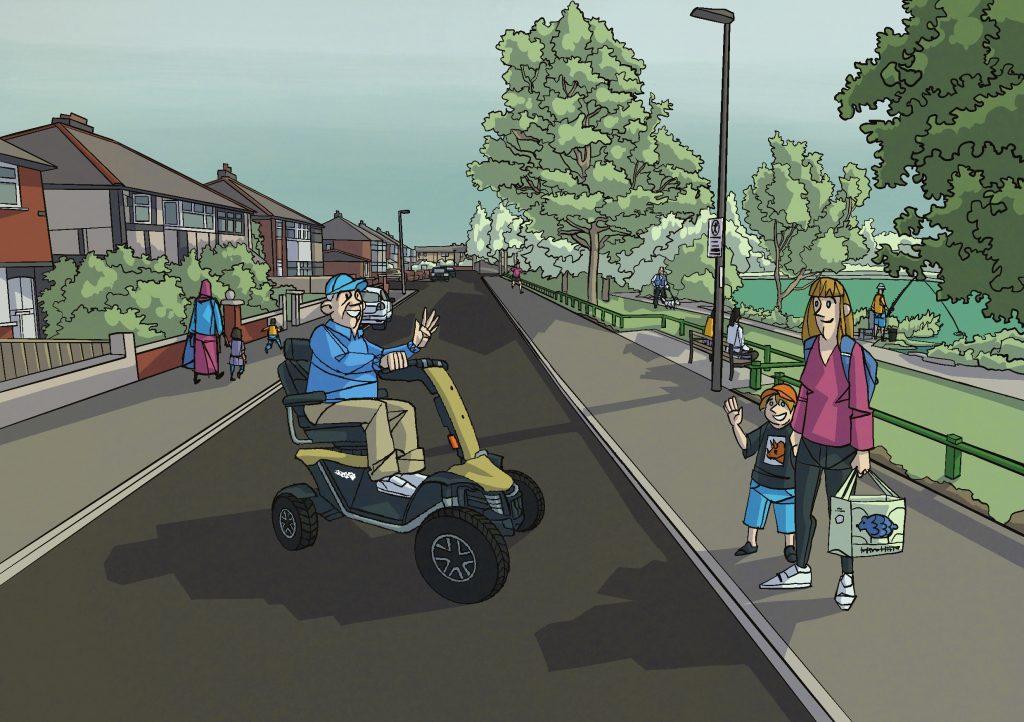Seminar #26 Research Launch and panel discussion: Mobile and Social – Enriching the lives of older and disabled people in Leigh

Summary
When planning our towns and cities, older and disabled people are often overlooked. This means it is all the more important to understand their experiences and take them into account when creating neighbourhood schemes. We’re sharing the results of our in-depth qualitative research on living in, socialising in, and getting around the Greater Manchester town of Leigh.
We presented our findings and insights across the three phases of our research, drawing together common threads for discussion and reflecting on the implications for urban policies across Greater Manchester.
You can find the final report here.
Presentations
Our expert panel provided important context to our research, with Dr Sophie Yarker (University of Manchester) providing insights into social infrastructure and Dr Richard Nickson (TfGM) reflecting on the report and how it develops our understanding of how transport relates to placemaking and sociability. Following the presentations, our panel took part in a busy Q&A with questions from our online and in-person audiences. Below you’ll find a video of each presentation, and the Q&A. Slides from the Sophie, Graeme and Ian are included below their clips.
Dr Sophie Yarker | Research Fellow in Sociology (University of Manchester)
With the help of the Chorlton tram cat “Batman”, Sophie explored what social infrastructure is, the different types of social connections, and the importance of these in the daily lives of older and disabled people.
Dr Graeme Sherriff | Reader (University of Salford)
Ian Cookson | Researcher (University of Salford)
Graeme and Ian presented the findings and recommendations from their research, conducted in Leigh (Greater Manchester), exploring the mobility patterns and social needs of older and disabled people.
Dr Richard Nickson | Programme Director (Transport for Greater Manchester)
Richard reflected on the report, and while noting tensions in some potential solutions, saw the benefit in focussing on placemaking, and how large organisations need to “sweat the detail” in how transport contributes to making places for people to live healthy active lives.
Q&A
Chair: Professor Muzammil Quraishi PhD
Professor Quraishi is a professor of Criminology & Criminal Justice at the University of Salford
Chaired by Professor Quraishi, our panel took questions from our audiences, both online and in-person on the report findings and their implications. Common themes included tensions in potential solutions, and the relationship between these solutions and creating an equitable transport system.